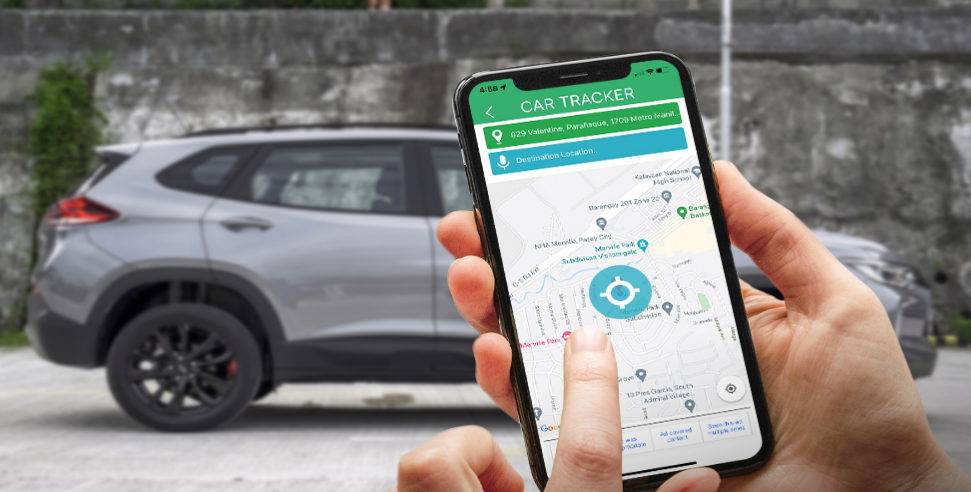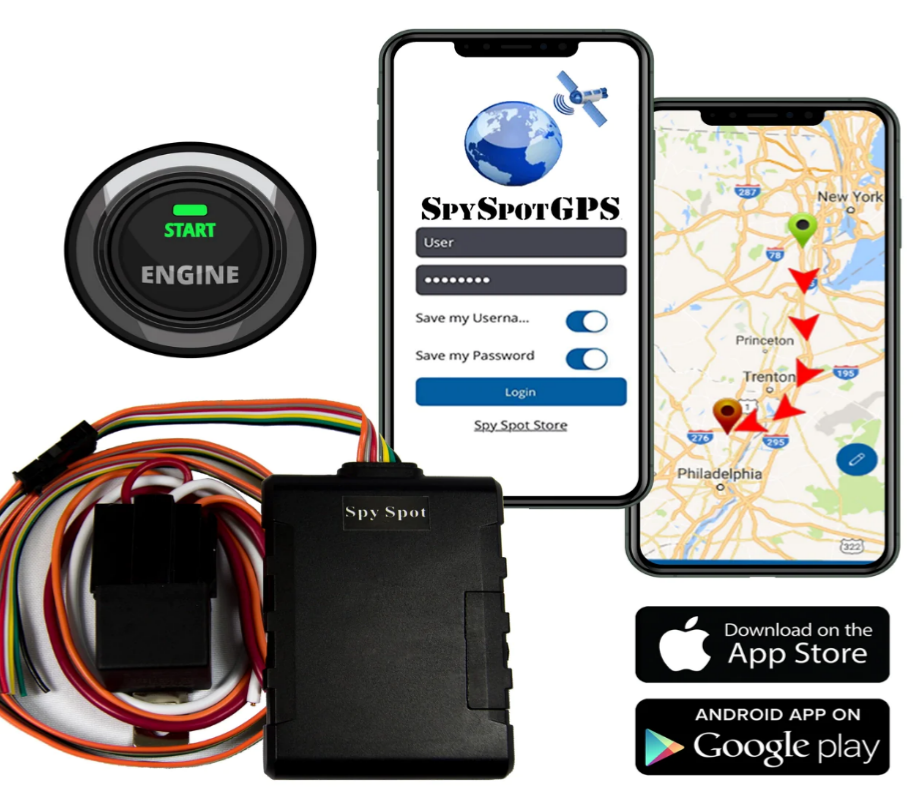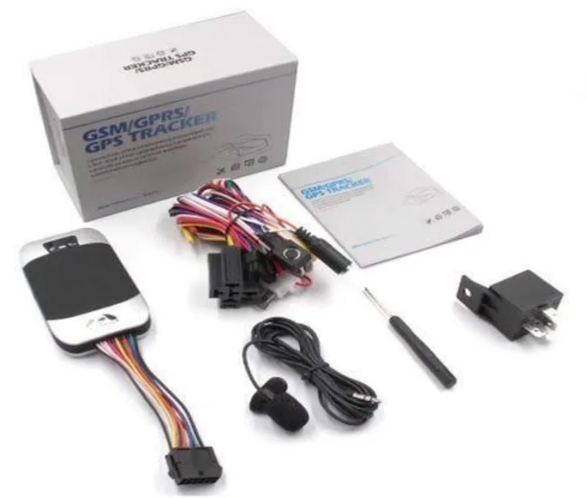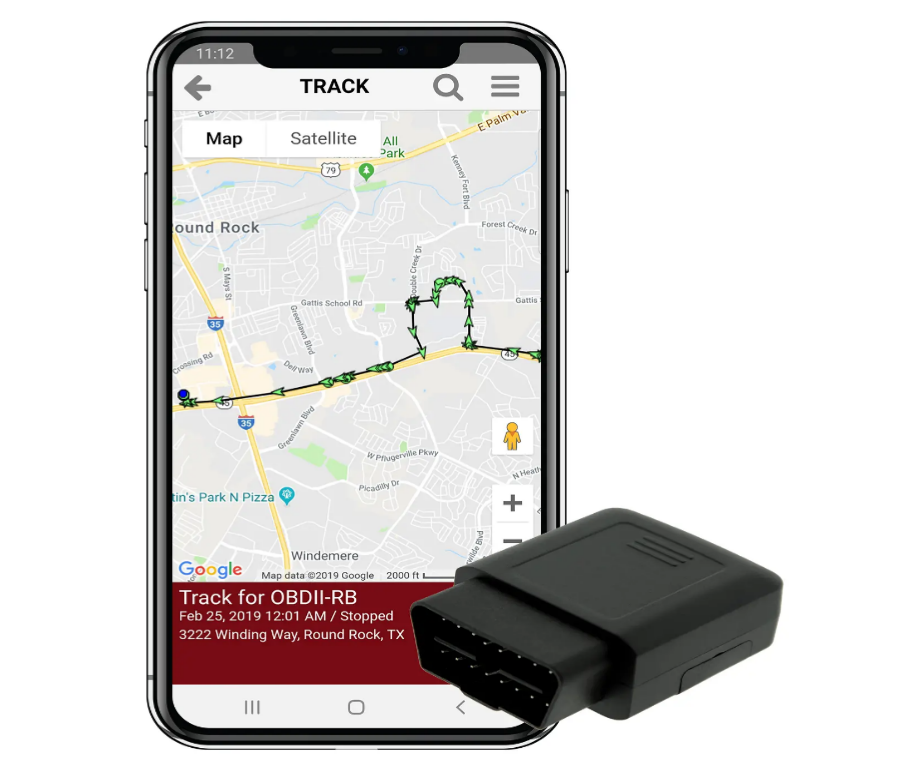A GPS car tracker is a device that uses GPS technology to track a vehicle’s location, providing real-time information about its whereabouts.
The Importance of a GPS Car Tracker
GPS car trackers have become an essential gadget in today’s interconnected world. They offer a convenient solution to keep track of a vehicle’s whereabouts and to monitor driving behavior. Whether it’s for personal use, like tracking a teenager’s driving habits, or business purposes, like managing a fleet of delivery trucks, GPS trackers provide real-time location data and a wealth of other valuable information.

Benefits of GPS Car Trackers
Some major benefits of GPS car trackers include enhancing security by preventing vehicle theft, enabling parents to monitor their children’s driving habits, helping businesses manage their vehicle fleets efficiently, and even potentially lowering car insurance premiums. Many people also use these devices to locate their vehicles in large parking lots or to track a car if it’s borrowed by a friend or family member. According to a study from Berg Insight, the number of active fleet management systems in North America is projected to reach 13.5 million units by 2022, which underlines the growing importance of these devices.
Brief History of GPS Technology
GPS, or Global Positioning System, is a satellite-based navigation system that provides location and time information in all weather conditions, anywhere on or near the Earth. It was first developed by the U.S. Department of Defense in the 1970s, but it wasn’t until the 2000s that GPS units became small and cheap enough to be used in cars and smartphones.
Evolution of GPS Technology
The first GPS satellite was launched in 1978, but it took another decade until the system was fully operational. Initially, GPS was used primarily for military and aviation purposes. However, in the mid-1990s, the U.S. government decided to make GPS available for civilian use, which sparked a revolution in technology and led to the development of GPS car trackers, among other devices. Today, GPS technology is used in many areas of everyday life, including navigation, timekeeping, and emergency response.
How Does a GPS Car Tracker Work?
A GPS car tracker is a navigation device that uses the Global Positioning System to track the precise location of a vehicle, person, or other asset to which it is attached. The data obtained can be viewed on electronic maps via the Internet or specialized software.

Working Principle of GPS Car Trackers
The core of a GPS car tracker’s operation lies in trilateration, a method used to determine the position of objects, based on measurements of the distances between the object and at least three GPS satellites. When a GPS tracker is turned on, it starts to receive signals from these satellites. By calculating the time it takes for the signal to travel from the satellite to the tracker, the device can determine the distance to each satellite and thereby pinpoint the exact location of the tracker.
Different Types of GPS Car Trackers
There are numerous types of GPS car trackers available on the market today, each with its own unique features and benefits.
Passive GPS Trackers
Passive trackers, also known as GPS loggers, store GPS data internally to be downloaded later. These devices are often used in applications where tracking data is required for later analysis, such as route planning or vehicle usage audits.
Active GPS Trackers
Active trackers, also known as real-time trackers, transmit location data as it’s gathered. This data can be viewed in real-time or historically, depending on the system. They are typically used in applications that require live tracking, such as fleet management or law enforcement.
Security and Theft Prevention
One of the primary benefits of using a GPS car tracker is enhancing the security of your vehicle. In case of theft, the GPS tracker can provide real-time location data, making it much easier for law enforcement to recover the stolen vehicle.
Anti-theft Applications
Many GPS trackers come with features specifically designed to prevent theft. For instance, some trackers offer a geofencing feature that sends alerts when the vehicle moves out of a pre-defined area. Others have an ignition alert that notifies the owner when the vehicle’s engine is started.
Monitoring Driving Behavior
GPS car trackers can also provide valuable insights into driving behavior. This can be especially useful for parents who want to monitor their teenage drivers or companies that wish to keep track of their fleet’s driving habits.
Driver Safety and Efficiency
Real-time tracking can provide information on speed, sudden acceleration or deceleration, and route history. These data can be used to encourage safer driving habits, promote fuel efficiency, and even predict maintenance needs based on driving patterns.
Asset Management
For businesses, GPS car trackers offer a valuable tool for asset management. They can help keep track of vehicle location and usage, monitor fuel consumption, schedule maintenance, and improve route efficiency.
Fleet Management
With GPS tracking, businesses can more easily manage a fleet of vehicles. It helps in creating optimal routes, reducing downtime, and ensuring efficient use of resources, which can save both time and money.
Lower Insurance Premiums
In some cases, installing a GPS car tracker can lead to lower insurance premiums. Some insurance companies offer discounts for vehicles equipped with GPS trackers as they can assist in theft recovery and encourage safer driving habits.

Real-time Tracking
Real-time tracking is a crucial feature of any GPS car tracker. It provides instant location updates, allowing you to monitor the whereabouts of your vehicle in real time. This feature is particularly useful for businesses with fleet management needs or for individuals who want to ensure the security of their vehicle.
Live Monitoring
With real-time tracking, you can access the vehicle’s location, speed, and direction of travel instantly. This live monitoring feature can also come in handy in emergency situations or for quick response in case of theft.
Geofencing
Geofencing is a feature that allows you to set up virtual boundaries on the map for your vehicle. If the vehicle crosses these boundaries, the tracker sends an alert. This can be useful for monitoring a vehicle’s use in business settings or for personal use such as ensuring a young driver stays within a certain area.
Zone Alerts
The geofencing feature can send alerts directly to your smartphone, providing real-time updates if a vehicle enters or leaves a designated area. This gives added peace of mind, especially in situations where unauthorized vehicle use is a concern.
Speed Alerts
Speed alerts are another beneficial feature of many GPS car trackers. They can be set to alert you when a vehicle exceeds a specific speed, which can promote safer driving and is particularly useful for monitoring young drivers.
Safety Monitoring
By setting up speed alerts, parents or employers can ensure their vehicles are not being used irresponsibly or dangerously. This can contribute to overall road safety and prevent speed-related accidents.
Historical Data
The ability to access historical data is another essential feature of GPS car trackers. This feature allows you to view past routes, speeds, and other relevant data, which can be invaluable for analyzing trends or documenting proof of service in commercial applications.
Route History
Historical data, including route history, can be used to optimize travel routes, validate timesheets, or provide evidence in the event of disputes about vehicle usage.
Hardwired vs Battery-operated
When choosing a GPS car tracker, considering the power source is crucial. Some trackers are hardwired into the vehicle’s power supply, while others are battery-operated. Each type has its advantages and disadvantages, so the choice depends on your specific needs.

Choosing the Right Location
The effectiveness of a GPS car tracker can significantly depend on where it’s installed in the vehicle. It should be placed in a location where it will have a clear “view” of the sky, but it should also be hidden enough to not be noticed and tampered with.
Ideal Placement Spots
Ideal locations for placement might include underneath the dashboard, inside the glove compartment, or beneath seats. Some GPS trackers are even designed to be attached to the vehicle’s chassis. In each case, care should be taken to ensure the tracker does not obstruct or interfere with any other components of the vehicle.
Step-by-step Installation Guide
Installing a GPS car tracker can vary based on the type of tracker and the specific vehicle. While professional installation is recommended for hardwired trackers, many GPS trackers are simple enough for users to install themselves.
DIY Installation
Here’s a general step-by-step guide for a self-installation:
- Purchase the right GPS tracker: Ensure that the tracker you have chosen is compatible with your vehicle and fulfills your requirements.
- Find a suitable location for the tracker: As discussed earlier, choose a location that is hidden but allows the tracker to effectively receive GPS signals.
- Secure the tracker: This could be as simple as placing it under the seat, sticking it inside the glove box, or using ties or tape to secure it to the chassis under the car.
- Test the tracker: Once the tracker is in place, test it to ensure it’s working correctly. This usually involves syncing the tracker with a mobile app or online platform and checking to see if it provides an accurate location.
Privacy Laws Related to GPS Tracking
While GPS trackers offer numerous benefits, it’s crucial to be aware of the privacy laws surrounding their use. These laws vary by location, so always ensure you understand the legislation in your particular jurisdiction.
Understanding the Legal Boundaries
In general, using a GPS tracker on a vehicle that you own is typically legal. However, installing a tracker on someone else’s car without their consent is often illegal and could lead to serious penalties. The same applies to tracking employees without their knowledge. It’s essential to seek legal advice if you are unsure about the legal implications of using a GPS tracker.
Guidelines for Ethical Use
Besides the legal considerations, there are also ethical aspects to think about when using GPS car trackers. Respecting privacy and using the technology responsibly is crucial.

Ethical Practices
Here are some guidelines for ethical use:
- Always obtain consent: Whether it’s an employee or a family member, always ensure you have their consent before using a GPS tracker.
- Be transparent: Make sure people know they’re being tracked, why they’re being tracked, and how the tracking data will be used.
- Limit tracking to legitimate purposes: Only use tracking for its intended purposes, such as enhancing safety, improving efficiency, or preventing theft.
Review of Top Brands
The GPS car tracker market is quite diverse, with various brands offering different features. Some of the top brands to consider include:
Garmin
Garmin is well-known for its reliable GPS technology. Their fleet tracking solutions offer comprehensive features for businesses, including live tracking, geofencing, and detailed reporting.
SpyTec
SpyTec is another prominent brand in the GPS tracking sector, particularly known for their compact and discrete trackers.
TomTom
TomTom provides a suite of fleet management solutions, including GPS tracking. Their products are praised for being user-friendly, and they offer real-time vehicle tracking, historical data, and customizable reports.
Comparing Pricing and Features
When choosing a GPS car tracker, considering both the price and features is important. The cost of GPS trackers can vary greatly, depending on the type of tracker, the brand, and the features it offers.
Cost Considerations
Basic GPS trackers can be relatively inexpensive but might offer limited features. On the other hand, more advanced trackers with extensive capabilities such as real-time tracking, geofencing, and detailed reporting can be pricier.
Feature Comparison
In addition to the cost, consider the features you need. If you’re a parent monitoring a new driver, a simple tracker with speed alerts and geofencing might be sufficient. However, if you’re a business managing a fleet, you may need a more advanced solution offering real-time tracking, fuel consumption monitoring, and detailed route histories.

Advancements in GPS Technology
GPS technology continues to evolve at a rapid pace, with advancements promising more accurate and reliable tracking. These developments will likely impact the GPS car tracking sector significantly.
High-Precision Tracking
As GPS technology improves, we can expect to see even more precise tracking capabilities. For example, technologies like Differential GPS (DGPS) and Real-Time Kinematic (RTK) GPS provide accuracy up to a few centimeters. This level of precision could improve various aspects of GPS car tracking, such as theft recovery and behavior monitoring.
Integration with IoT
The Internet of Things (IoT) is also shaping the future of GPS tracking. IoT devices can collect and exchange data, and when integrated with GPS tracking systems, they can provide richer data sets and more comprehensive analytics.
Impact of Autonomous Vehicles on GPS Tracking
The rise of autonomous vehicles will undoubtedly influence the world of GPS car tracking. As cars become more intelligent and interconnected, the scope for GPS tracking expands.
Autonomous Fleet Management
With autonomous vehicles, fleet management could become significantly more efficient. Real-time GPS tracking could be combined with autonomous navigation systems to optimize routes, reduce fuel consumption, and increase overall fleet productivity.
Enhanced Safety Features
GPS tracking in autonomous vehicles could also enhance safety features. This could lead to safer, more reliable transportation.
Recap of Key Points
This article has taken a comprehensive look at GPS car trackers, from their importance and functionality to their legal and ethical use.
Understanding GPS Trackers
We’ve explored how these devices work and the different types available, highlighting the importance of selecting a tracker that meets your specific needs and requirements. From security and theft prevention to monitoring driving behavior and asset management, the benefits of using a GPS car tracker are numerous.

Legal and Ethical Considerations
While these devices are incredibly useful, it’s crucial to use them responsibly and legally, with respect for privacy rights and ethical considerations.
Selection and Installation
Choosing the right GPS car tracker involves assessing various factors, including real-time tracking, geofencing, speed alerts, and power sources. Additionally, installing a GPS tracker involves careful location selection and adherence to the installation guide.
Brands and Future Trends
We’ve touched on several popular brands in the GPS car tracker market and looked into the future trends, emphasizing the advancements in GPS technology and the impact of autonomous vehicles on GPS tracking.
Final Thoughts on the Importance of GPS Car Trackers
In conclusion, GPS car trackers play a pivotal role in our modern world. They not only provide security for vehicle owners but also offer valuable data that can enhance safety, improve efficiency, and support business operations. As the technology continues to evolve, we can expect GPS trackers to become an even more integral part of our daily lives and transportation systems. By staying informed about this technology, users can make the most of their GPS car trackers and navigate the future with confidence.
References:
- Vehicle Tracking System – Wikipedia
- GPS Navigation Device – Wikipedia
- Garmin – Wikipedia
- TomTom – Wikipedia
- Internet of Things (IoT) – Wikipedia
- Autonomous Car – Wikipedia
- Surveillance – Legal and Regulatory Issues – Wikipedia
[faq-schema id=”59″]